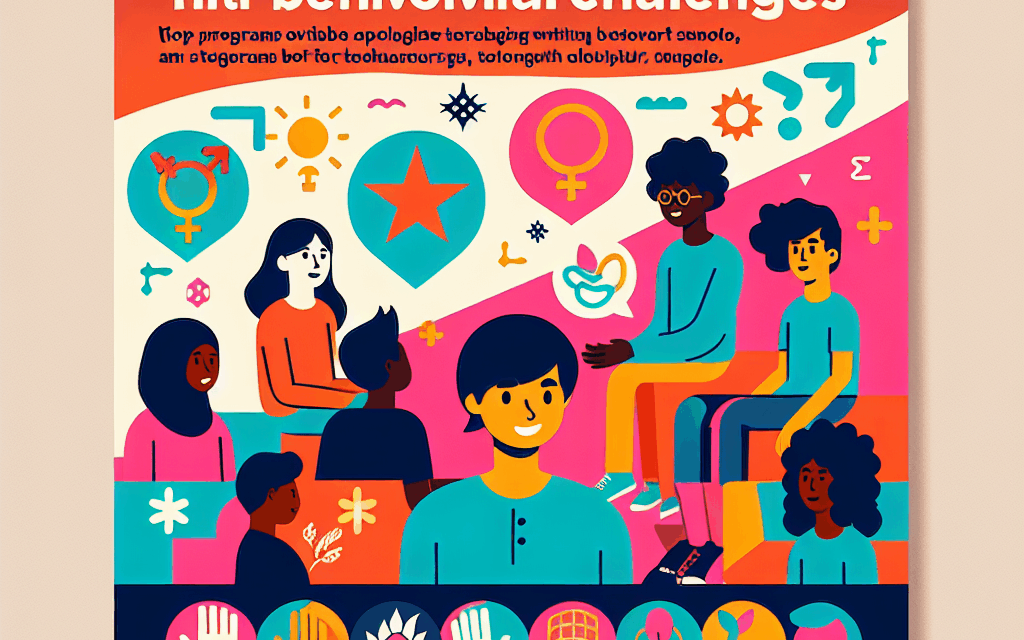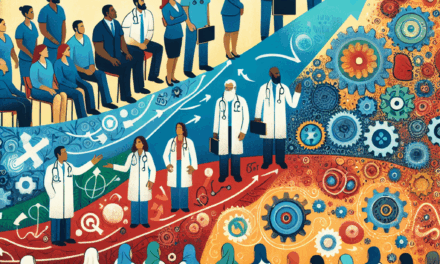Top Programs in Phoenix for Teens Facing Behavioral Challenges
Behavioral challenges among teenagers can manifest in various forms, including anxiety, depression, substance abuse, and defiance. These issues can significantly impact their academic performance, relationships, and overall well-being. Fortunately, Phoenix, Arizona, offers a range of programs designed to support teens facing these challenges. This article explores the top programs available in Phoenix, providing insights into their methodologies, success rates, and the unique benefits they offer.
1. Therapeutic Boarding Schools
Therapeutic boarding schools combine traditional education with therapeutic interventions to help teens struggling with behavioral issues. These institutions provide a structured environment where students can focus on their mental health while continuing their education.
One notable example is Desert Hills Academy, which caters to adolescents aged 12-17. The school employs a holistic approach, integrating academic instruction with therapy sessions, life skills training, and recreational activities. The program emphasizes emotional growth and personal responsibility, helping students develop coping strategies and resilience.
- Individualized Treatment Plans: Each student receives a tailored treatment plan that addresses their specific needs, ensuring that they receive the appropriate support.
- Qualified Staff: The staff includes licensed therapists, educators, and support personnel who work collaboratively to foster a nurturing environment.
- Family Involvement: Programs often include family therapy sessions, recognizing the importance of family dynamics in a teen’s recovery process.
Statistics show that therapeutic boarding schools can significantly improve behavioral outcomes. According to a study published in the Journal of Child Psychology and Psychiatry, students in such programs exhibited a 70% improvement in behavioral issues after six months of enrollment.
2. Community-Based Programs
Community-based programs play a crucial role in providing support to teens facing behavioral challenges. These programs often focus on prevention and early intervention, helping teens develop essential life skills and coping mechanisms.
The Boys & Girls Clubs of Metro Phoenix is a prime example of a community-based initiative that offers a safe space for teens. The organization provides various programs, including academic support, leadership development, and mental health resources.
- After-School Programs: These programs offer homework help, tutoring, and enrichment activities, ensuring that teens stay engaged and supported academically.
- Life Skills Workshops: Workshops focus on essential skills such as conflict resolution, communication, and decision-making, empowering teens to navigate challenges effectively.
- Mental Health Resources: The organization collaborates with local mental health professionals to provide counseling services and workshops on mental wellness.
Research indicates that participation in community-based programs can lead to improved academic performance and reduced behavioral issues. A report from the National Institute of Justice found that youth involved in community programs were 30% less likely to engage in delinquent behavior compared to their peers.
3. Wilderness Therapy Programs
Wilderness therapy programs offer a unique approach to addressing behavioral challenges by immersing teens in nature. These programs focus on experiential learning, helping participants develop self-awareness, teamwork, and problem-solving skills.
Outback Therapeutic Expeditions is a well-regarded wilderness therapy program operating in the Phoenix area. The program combines outdoor adventures with therapeutic interventions, allowing teens to confront their challenges in a supportive environment.
- Adventure-Based Learning: Activities such as hiking, rock climbing, and camping encourage teens to step out of their comfort zones and build confidence.
- Therapeutic Support: Licensed therapists accompany participants on expeditions, providing individual and group therapy sessions to address emotional and behavioral issues.
- Focus on Personal Growth: The program emphasizes personal responsibility and accountability, helping teens recognize the impact of their choices.
Wilderness therapy has shown promising results in improving mental health outcomes. A study published in the Journal of Experiential Education found that participants in wilderness therapy programs reported a 60% reduction in symptoms of anxiety and depression after completion.
4. Mental Health Clinics and Counseling Services
Access to mental health services is crucial for teens facing behavioral challenges. Phoenix is home to several mental health clinics that offer counseling and therapy tailored to adolescents.
Valleywise Health Behavioral Health Center is one of the leading mental health facilities in the area, providing comprehensive services for teens. The center offers individual therapy, group therapy, and family counseling, addressing a wide range of behavioral issues.
- Evidence-Based Therapies: The center employs evidence-based practices such as Cognitive Behavioral Therapy (CBT) and Dialectical Behavior Therapy (DBT) to help teens manage their emotions and behaviors.
- Integrated Care: Valleywise Health emphasizes a holistic approach, integrating physical and mental health services to provide comprehensive care.
- Support for Families: The center offers resources and support for families, recognizing the importance of a strong support system in a teen’s recovery journey.
Statistics from the Substance Abuse and Mental Health Services Administration indicate that early intervention through mental health services can lead to significant improvements in behavioral outcomes. Teens who receive timely support are 50% more likely to achieve positive mental health outcomes compared to those who do not seek help.
5. School-Based Programs
School-based programs are essential in addressing behavioral challenges among teens, as they provide support within the educational environment. These programs often focus on social-emotional learning and mental health awareness.
Phoenix Union High School District has implemented several initiatives aimed at supporting students’ mental health. The district offers counseling services, peer support groups, and mental health education programs to help students navigate their challenges.
- School Counselors: Each school within the district has trained counselors who provide individual and group counseling services to students in need.
- Peer Support Programs: These programs train students to support their peers, fostering a sense of community and reducing stigma around mental health issues.
- Mental Health Education: The district incorporates mental health education into the curriculum, equipping students with knowledge about emotional well-being and coping strategies.
Research from the American Psychological Association indicates that school-based mental health programs can lead to improved academic performance and reduced behavioral issues. Students who participate in such programs are 40% more likely to report positive mental health outcomes compared to their peers.
Conclusion
Teens facing behavioral challenges require comprehensive support to navigate their difficulties effectively. Phoenix offers a variety of programs, including therapeutic boarding schools, community-based initiatives, wilderness therapy, mental health clinics, and school-based programs. Each of these options provides unique benefits and approaches to help teens develop the skills they need to thrive.
As parents and guardians consider the best options for their teens, it is essential to evaluate each program’s methodologies, success rates, and the specific needs of their child. By providing the right support and resources, we can empower teens to overcome their challenges and build a brighter future.
In summary, the key takeaways from this article include:
- The importance of individualized treatment plans in therapeutic boarding schools.
- The role of community-based programs in providing early intervention and support.
- The unique benefits of wilderness therapy in fostering personal growth and resilience.
- The critical need for accessible mental health services in clinics and counseling centers.
- The effectiveness of school-based programs in promoting mental health awareness and support.
By understanding the available resources and programs in Phoenix, we can better support teens facing behavioral challenges and help them achieve their full potential.





